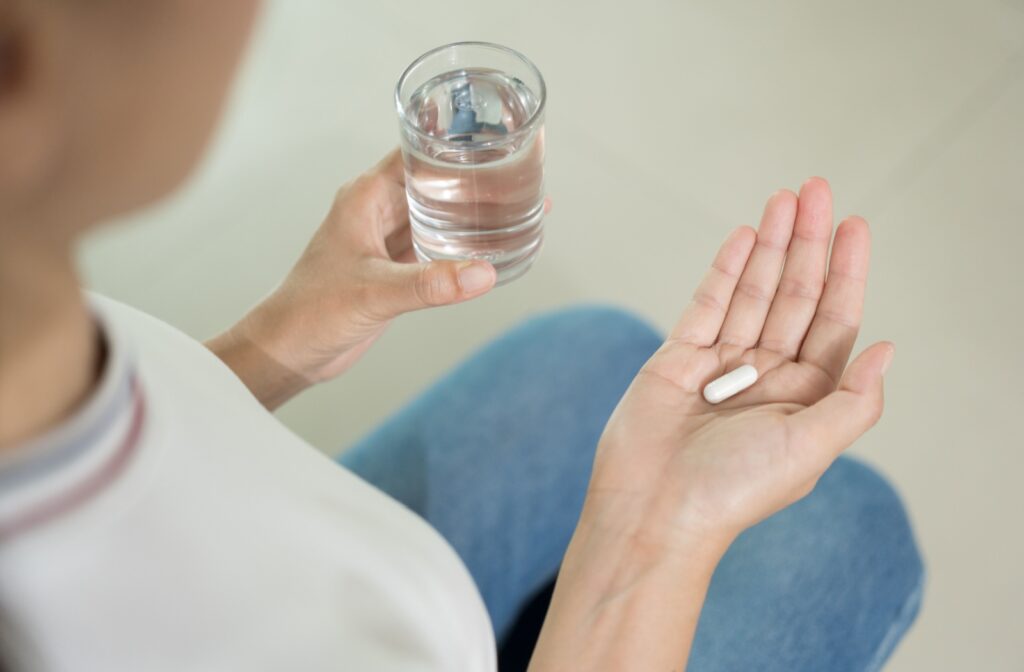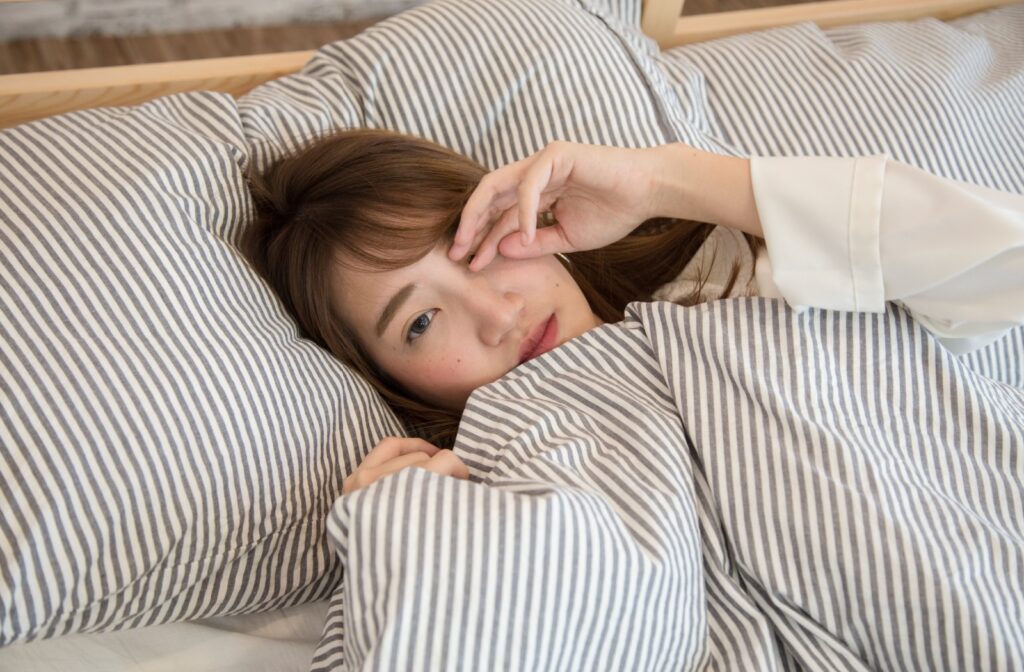Waking up with tired, irritated eyes can be a frustrating way to start your day. However, if this happens regularly, there’s a good chance you’re dealing with dry eye disease, a common yet often misunderstood condition that goes beyond simply needing eye drops.
Dry eye disease occurs when your eyes don’t produce enough quality tears to keep the surface of your eyes comfortable and protected. While symptoms can show up at any time of day, many people experience them first thing in the morning. This may be due to how your eyes respond overnight or how your environment, habits, and/or underlying health conditions are affecting your eyes while you sleep.
1. A Dry Sleeping Environment
If the air in your bedroom is dry, your tear film can evaporate more quickly while you sleep. This leaves the surface of your eyes unprotected and irritated by morning. Dry air can come from heating systems, air conditioners, or naturally arid climates, especially during the winter months.
Using a humidifier in your bedroom can help add moisture to the air and reduce the rate at which your tears evaporate. Even small changes in humidity can make a noticeable difference in your morning comfort.
2. Allergies May Be Affecting Your Eyes Overnight
Environmental allergies don’t just cause sneezing or nasal congestion; they can also irritate your eyes, especially when allergens build up in your sleep environment. Pollen, pet dander, dust mites, and even mold can settle in your bedding and circulate through open windows or air vents, triggering inflammation and discomfort.
To reduce exposure, try:
- Keeping your windows closed at night, especially during high-pollen seasons.
- Showering before bed washes away allergens from your skin and hair.
- Washing pillowcases and bedding frequently in hot water.
- Use air purifiers or allergen-resistant covers on your pillows and mattress.
If your allergies are consistently being triggered, we may also recommend an antihistamine eye drop or other supportive treatment.
3. You Might Be Sleeping With Your Eyes Partially Open
It’s more common than you may think! Some people sleep with their eyelids slightly open, a condition called nocturnal lagophthalmos. When your eyelids don’t fully close, the surface of your eye is exposed to the air, causing the tear film to evaporate overnight. This often leads to redness, light sensitivity, and irritation in the morning.
If your partner or family member has noticed your eyes remaining partially open during sleep, or if you consistently wake up with burning or blurry vision, you may be dealing with this condition. Protective strategies include using a moisture-sealing eye mask, applying nighttime lubricating ointments, or, in some cases, receiving treatment from your eye doctor to address lid positioning.
4. Your Eyes May Not Be Producing Quality Tears
At the core of dry eye disease is a problem with your tears. You may not be producing enough, or the tears your eyes do make may lack the right balance of water, oil, and mucus. Tears need all three of these layers to protect the eye’s surface and maintain comfort.
A common cause of poor tear quality is meibomian gland dysfunction (MGD). These tiny glands in your eyelids are responsible for secreting the oils that prevent tear evaporation. When they become blocked or sluggish, the oily layer of the tear film is compromised, and your eyes dry out more quickly, especially overnight when blinking slows or stops.
MGD often requires in-office treatments, such as intense pulsed light (IPL) therapy.
5. Certain Medications Can Trigger Dry Eye Symptoms

Some prescription and over-the-counter medications can reduce your ability to produce healthy tears. Common culprits include:
- Antihistamines
- Antidepressants
- Blood pressure medications
- Hormone therapies
- Decongestants
If you’ve recently started a new medication and noticed your symptoms worsening, don’t hesitate to contact us. While it’s not always possible to stop medication, we can suggest strategies to reduce dryness or recommend alternatives.
6. Poor Eyelid Hygiene or Inflammation
Your eyelids play a key role in tear production and eye protection. If your eyelid margins become inflamed, a condition known as blepharitis, this can disrupt your tear film and worsen symptoms of dry eye disease, particularly in the morning. Blepharitis is often caused by bacterial overgrowth, clogged glands, or underlying skin conditions like rosacea.
Signs of eyelid inflammation include crusty lashes, itchy lids, and a burning sensation. Keeping your eyelids clean is essential for preventing flare-ups. We may recommend lid scrubs, warm compresses, or specialized in-office treatments to help manage inflammation and improve tear film stability.
Tips for Managing Dry Eye in the Morning
Treating dry eye disease effectively depends on addressing the root cause, but there are several simple steps you can take at home to reduce your morning discomfort:
- Use a humidifier in your bedroom to keep the air moist.
- Apply preservative-free artificial tears in the morning or before bed to help lubricate your eyes.
- Practice good hydration by drinking water regularly throughout the day.
- Limit screen time in the evenings, as excessive screen use can reduce blinking and increase tear evaporation.
- Use a warm compress daily to keep your eyelid glands functioning properly.
- Evaluate your contact lenses; in some cases, switching lens materials or brands can significantly improve symptoms.
Let West Valley Dry Eye Center Help You Wake Up Refreshed
Living with dry eye disease, especially when it disrupts your mornings, can take a toll on your daily comfort and well-being. But the good news is that relief is possible with the right care.
At West Valley Dry Eye, we can diagnose and treat dry eye disease using diagnostic tools and personalized treatment plans. Whether your symptoms are mild or severe, we’re here to help you understand what’s going on and find solutions that work for your lifestyle. Book an appointment today to take the first step toward clearer, more comfortable mornings. We’re here to support your vision and your comfort every day.


